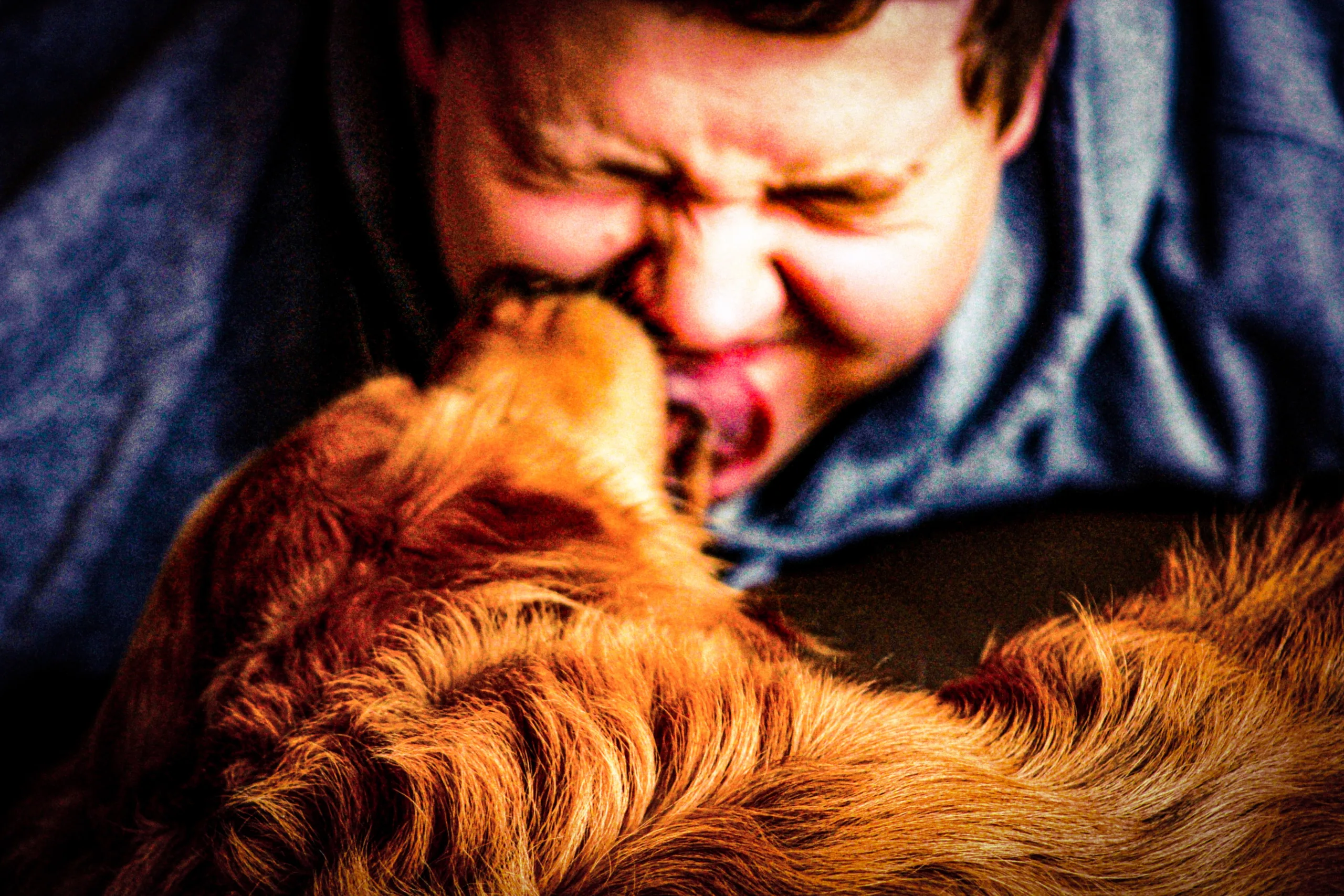Mononucleosis, often referred to as “mono,” is a common viral infection in humans caused by the Epstein-Barr virus (EBV). It primarily affects teenagers and young adults, and it is commonly known as the “kissing disease” due to its spread through saliva. But can dogs also catch mono? In this article, we will explore whether dogs can get mono, how the virus spreads, and common questions related to mononucleosis in both humans and dogs.
For more about dogs click here
Can Dogs Catch EBV (Epstein-Barr Virus)?
The Epstein-Barr virus (EBV) is a human-specific virus that primarily infects and replicates in human B lymphocytes, a type of white blood cell. Dogs, like most other animals, cannot contract the Epstein-Barr virus. The virus has not been reported to infect dogs, and there is no evidence to suggest that dogs can catch EBV or develop mononucleosis.
Mono is a disease that is specific to humans and some non-human primates. Dogs and other animals do not harbor the Epstein-Barr virus, and therefore, they cannot get mono.
Is Mono Always Spread by Kissing?
While mononucleosis is often referred to as the “kissing disease” because it can spread through saliva, it is not exclusively transmitted through kissing. The virus can also be spread through other forms of close contact with an infected person’s saliva, such as sharing utensils, drinks, or lip balm. Additionally, the virus can spread through respiratory droplets, such as those produced by coughing or sneezing.
It is important to note that mono is caused by human-specific strains of the Epstein-Barr virus, and dogs cannot transmit or contract this virus.
Can You Get Mono from Your Cat?
As previously mentioned, mononucleosis is caused by the Epstein-Barr virus, which is specific to humans and some non-human primates. Cats, like dogs, cannot contract or spread the Epstein-Barr virus. Therefore, you cannot get mono from your cat.
It is essential to remember that different species have different viruses and diseases that are specific to them. While there are some diseases that can be transmitted between humans and animals (zoonotic diseases), mono is not one of them.
How Long is Mono Contagious?
In humans, mononucleosis is contagious during the incubation period, which is the time between initial infection and the appearance of symptoms. The incubation period for mono is typically around 4 to 6 weeks, but it can vary.
Once symptoms of mono develop, individuals can remain contagious for several weeks to months. The virus can persist in saliva for an extended period after symptoms have resolved. Individuals can continue to spread the virus to others through close contact during this time.
It’s important for individuals with mono to take precautions to avoid spreading the virus to others, especially through close contact or sharing items that come into contact with saliva.
FAQs (Frequently Asked Questions)
1. Can dogs get sick from human mono?
No, dogs cannot get sick from human mono! It’s because the Epstein-Barr virus that causes mono is specific to humans and some non-human primates.
2. Can humans catch diseases from dogs?
Yes, there are some diseases known as zoonotic diseases that can be transmitted from animals, including dogs, to humans. However, mononucleosis is not one of them.
3. Can mono be severe in humans?
Mononucleosis is typically a self-limiting illness in healthy individuals. However, in some cases, it can cause more severe symptoms, especially in individuals with weakened immune systems.
4. Is there a vaccine for mono?
Currently, there is no vaccine specifically designed to prevent mononucleosis caused by the Epstein-Barr virus. However, researchers continue to study the virus to develop potential preventive measures.
5. Can mono recur in humans?
Once a person has been infected with the Epstein-Barr virus and has developed mononucleosis, the virus remains in the body for life. While symptoms typically resolve, the virus can reactivate and cause mild symptoms again during periods of stress or immune system compromise.
In conclusion, mononucleosis is a human-specific disease caused by the Epstein-Barr virus. Dogs, cats, and other animals cannot contract or spread this virus. It is essential to be aware of the specific diseases that affect each species and take appropriate precautions to prevent the transmission of illnesses between humans and animals.
Click here for more
